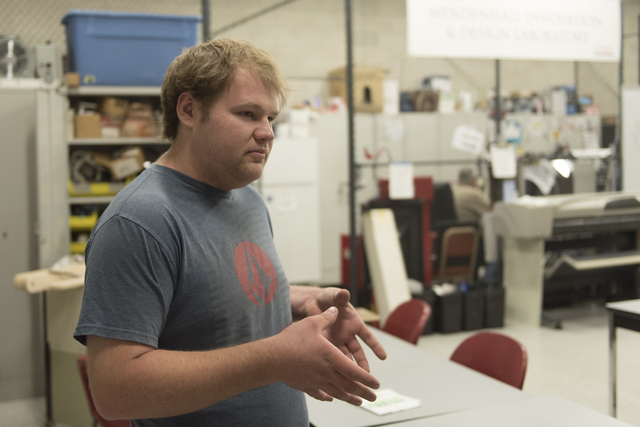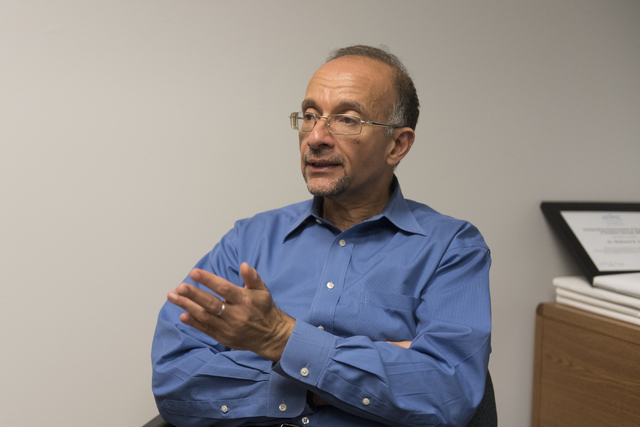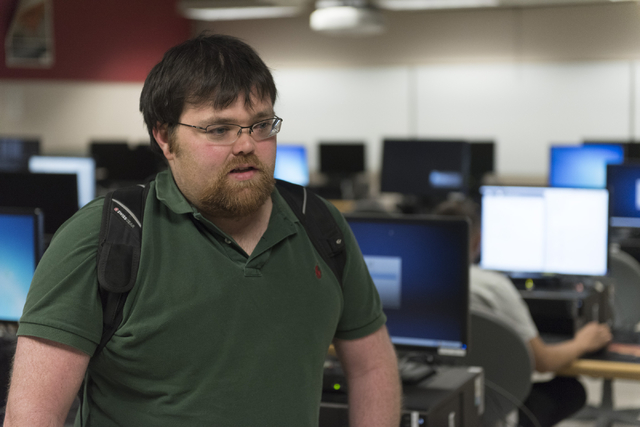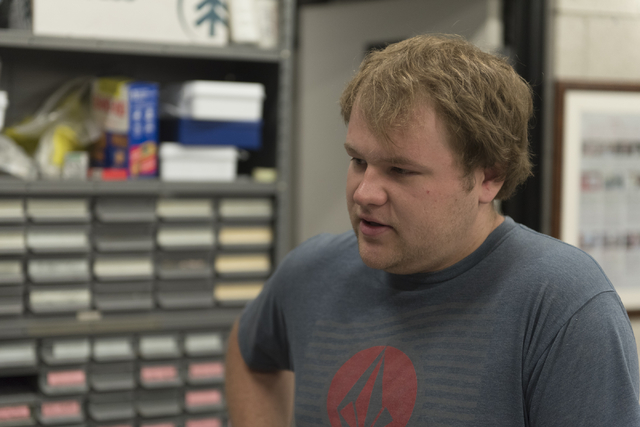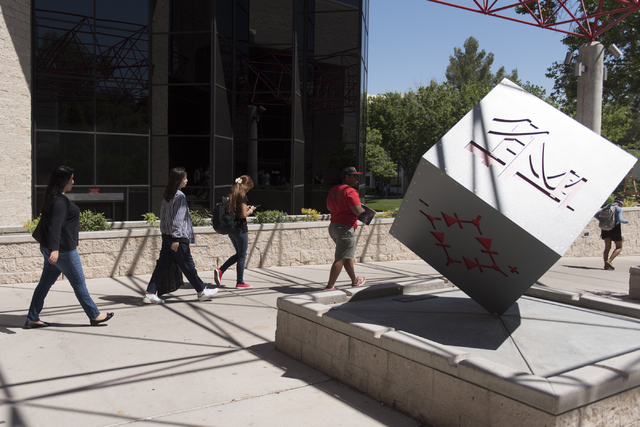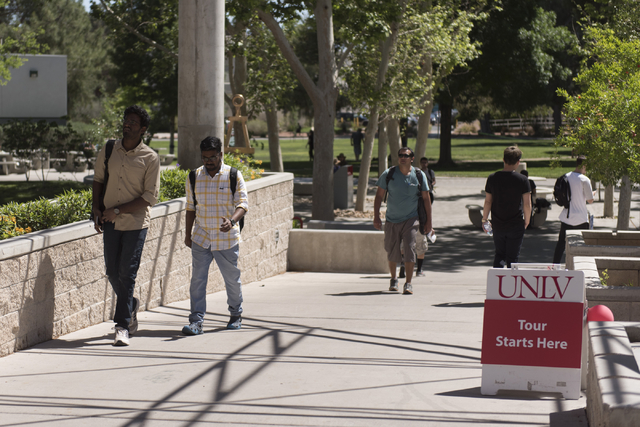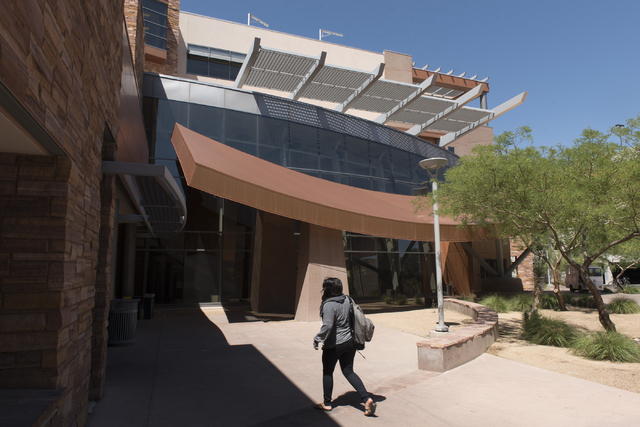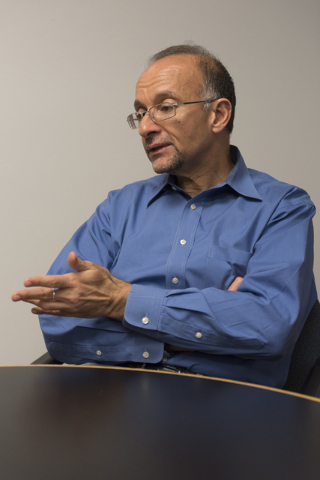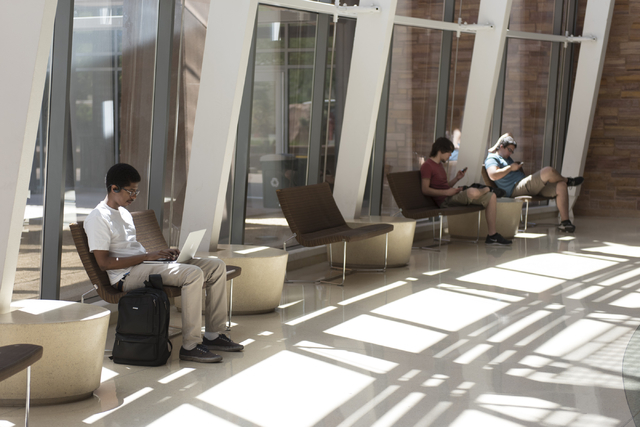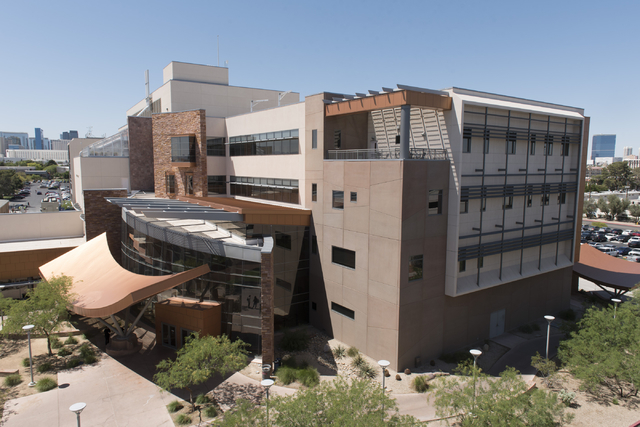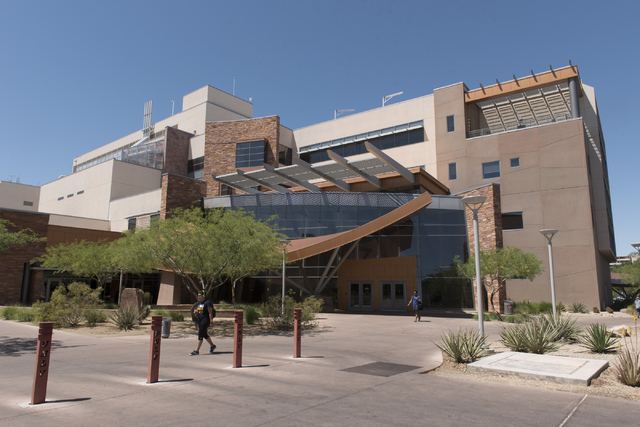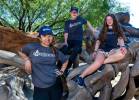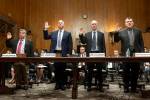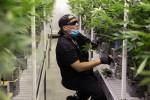Faraday Future plans 10 paid internships for Nevada college students
Nevada college students have a chance to work with Faraday Future this summer, well before the burgeoning electric car company opens a $1 billion, 3-million-square-foot factory in North Las Vegas.
The company is committing 10 paid internship positions for Nevada students.
Some of those internships could turn into regular jobs at the plant that’s soon to be built at the Apex Industrial Park.
Faraday spokeswoman Catherine Cole said that of the company’s 47 interns in Southern California, it has hired 15 for full-time jobs in manufacturing, battery engineering and human resources.
For its North Las Vegas factory, Faraday must hire at least 50 percent of its 4,500 employees from Nevada in order to qualify for state tax incentives. Stacy Morris, another Faraday spokeswoman, said the Nevada jobs will be about 80 percent production, such as assembly line jobs, controlling robots and operating a paint shop. The other 20 percent will be in engineering, information technology, human resources, finance and other areas.
Cole said the company views the internship program as a “pipeline” for Nevada students who could potentially get hired in Los Angeles and then transfer to the Nevada factory when it opens.
The company declined to give a specific factory opening date but said there would be temporary Nevada offices before it’s completed. At the factory groundbreaking earlier this month, the company said it expected to be producing cars “in the next couple years.”
Nevada lawmakers in December approved $215 million in tax incentives to woo Faraday.
The summer internship program, based at the company’s headquarters in Los Angeles, is looking for students in engineering, computer science and communications, among other areas.
Nevada students would receive free round-trip airfare to Los Angeles, though housing is not included. The company has about 700 employees in California. Cole said that if the company has “enough of an operation” by fall, then future Nevada interns could work in the Las Vegas area ahead of the factory opening.
The internships pay between $18 and $30 an hour, depending on the student’s degree and class standing. Applicants must be at least juniors or recent graduates to apply for the internship, which runs from mid-May to early September.
The company said it has reached out to the University of Nevada, Las Vegas, University of Nevada, Reno and College of Southern Nevada for potential interns.
Ashton Pearson, 21, a UNLV mechanical engineering freshman, said he wasn’t aware of the internship but is interested in applying once he becomes eligible.
Pearson, a member of the UNLV chapter of the Society of Automotive Engineers, said he has closely watched the company and was inspired when another major electric carmaker, Tesla, visited the campus in the fall to recruit interns. Tesla and partner Panasonic Corp. are building a $5 billion, 10 million-square-foot battery research and manufacturing plant just east of Reno.
“It’s cool to see a lot of industry moving here,” said Pearson, referring to Tesla and Faraday.
Regarding the car concept, Pearson said if it turns out to be an inclusive electric car, “That really is gonna be something special.”
Clint Goldstein, 33, a computer science major at UNLV, welcomed the internship opportunity and said he thinks Nevada has students with relevant skills.
Public schools in Nevada get a bad rap, but technology-oriented programs at Rancho High School and other magnet programs at Nevada high schools can help give students a leg up, Goldstein said.
Mohamed Trabia, associate dean at the Hughes College of Engineering, said the internship opportunity would be beneficial for students.
Trabia said he tells students who intern to “maximize” what they can learn while they are there so that even if they don’t get a job offer, they can market those skills to other employers.
Trabia described the areas of robotics, automotive and aerospace as “three spaces that capture the imagination of our students.”
The dean said the move to commit 10 spots for Nevada students was a good start. Trabia, who has talked to various employers over his 30 years with UNLV, said they look at internship histories as if they’re looking at grades and in some cases value that real-world experience above perfect grades.
Contact Alexander S. Corey at acorey@reviewjournal.com or 702-383-0270. Find @acoreynews on Twitter.



